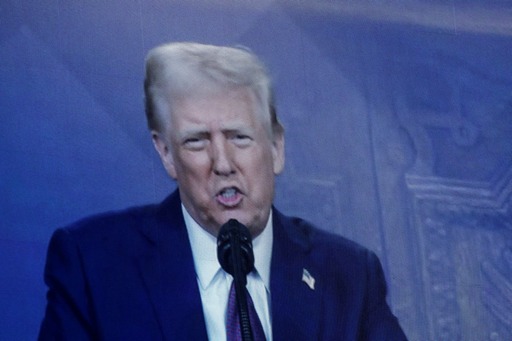Big Tech’s battle with European regulators may ultimately be overshadowed by the Trump administration’s destabilization of the broader Europe-U.S. security relationship. President Trump’s threat of using tariffs as retaliation for EU tech regulatory policy is not happening in a vacuum. His questioning of NATO’s value, ambiguity over Ukraine, threats to reduce U.S. troop strength in Europe, warming relations with Vladimir Putin, and castigation of Europe’s commitment to its own defense have also created a new ambiguity about America’s commitment to European security.
These [European] security concerns are spilling over into the tech sector. In early March the Dutch parliament passed eight resolutions with broad support urging the government to replace American-made software and hardware. If there is no stability in our security and trade relationships with the United States, the argument goes, is it still possible to rely on American companies for essential digital services?
The threat of Vladimir Putin and the unpredictability of Donald Trump have converged to redefine European security. “Naturally, Russia’s neighbors are most concerned by Russia,” European Council president Antonio Costa recently explained, “But what is essential is for everyone to understand that this is a collective threat.”
To provide some related points not contained in the linked article:
The full potential of the European (Digital) Single Market remains largely untapped: intra-EU trade in digital services represent a mere 8% of the bloc’s GDP, which is in stark contrast to the intra-EU trade of manufactured goods that is beyond 25%.
Currently, 80% of the technologies and digital services within the EU are designed and manufactured in third countries, according to CERRE, the Centre on Regulation in Europe (link opens pdf).
At the same time, European digital companies struggle to capture a significant share of the global market value, with a percentage share somewhere in low or mid-single digits. Measured by market capitalization, just two European companies make it to the top-20 ICT firms in the world (Germany’s SAP and Dutch ASML), and only 10 European digital champions make it to the global top-100.
The European Union’s Digital Decade policy programme 2030 has made some progress, but so far fell short, as the Commission itself admitted referring to its 2024 State of the Digital Decade report:
Over the last 5 years, the EU has strategically pivoted toward a more assertive digital policy framework, recognising the urgent need to shape the digital space with targeted investments and robust regulatory mechanisms when necessary. This approach marks a significant disruption, propelling the EU to the forefront of global digital governance and policy innovation.
But says that past experience
reveals two significant concerns: insufficient progress in reaching the objectives and targets and significant fragmentation across Member States. This highlights the need for more significant efforts by Member States to ensure the EU’s control over its future.
The question is now whether Mr. Donald Trump could push EU members to a better coordination of their policies, thus helping indeed to make European tech great again?
As an additional example that could be a sign of change: Back in March 2025, several Dutch universities called were calling for greater digital autonomy as more research and educational data is stored in American clouds, posing risks to academic freedom, privacy and accessibility, they said in an open letter. Here, for example, the release by the Utrecht University:
We, the undersigned, express our concern about Utrecht University’s increasing reliance on services from Big Tech companies (particularly Microsoft, Google, Amazon) for our research, teaching and administrative activities. Several years ago, the Rectors of the Dutch universities collectively and wisely warned about this. Since then, little has happened; worse, almost all Dutch universities migrated to Big Tech cloud services, at the expense of our internally operated computer centers.
Yes
Hard to believe that Europe can benefit from America’s mistakes. I don’t see Europe on the way to make the necessary changes. We’ll see how the GDPR reform goes.


